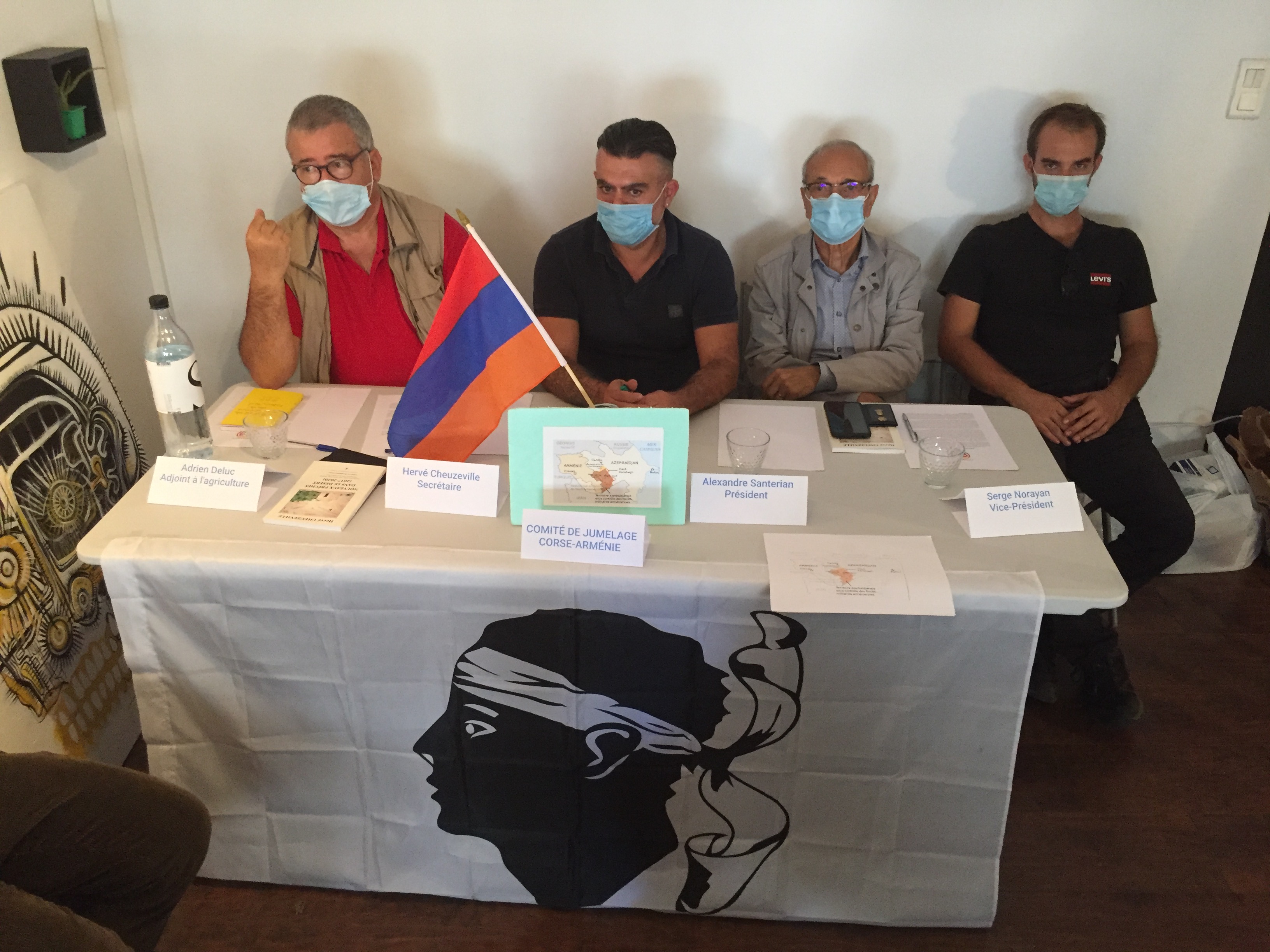Since September 27, the military situation between Armenia and Azerbaijan has continued to deteriorate. Faced with the situation, Armenia proclaimed general mobilization and a state of emergency throughout the country. Azerbaijan did the same a few hours later.
At the origin of the conflict which has already claimed hundreds of lives, Nagorno-Karabakh, a small mountainous territory disputed by Azerbaijan and Armenia. “We, inhabitants of Corsica, of Armenian origin or not, wish to express our deep emotion in the face of the new aggression to which the Armenian people are victim. »Declares Alexandre Santerian, president of the Corsica Armenia twinning committee. A committee that has just been created for the occasion around Alexandre Santerian, Serge Norayan, vice-president and Hervé Cheuzeville, secretary, geopolitical writer specializing in the right to self-determination of peoples.
«Artsakh territory, known internationally as Nagorno-Karabakh, has been Armenian since antiquity »Continues A. Santerian. “It was in 1921 that the Bolshevik authorities decided, for purely administrative reasons, to reunite the territory with their socialist republic of Azerbaijan. In December 1991, when the Soviet Union was breaking up, a referendum was organized and the 150,000 inhabitants of the territory decided, by an overwhelming majority, to emancipate themselves from Azerbaijan. A war which left thousands of dead ensued. Since 1994, a precarious ceasefire had persisted. Today we cannot stand idly by and we decided to organize a humanitarian convoy from Corsica, as soon as possible. ».
During the press conference, Asmik, an Armenian married to a Corsican, made a point of speaking, in her language, the translation being made by her husband: “For 5 days Armenia has been fighting against aggressors from surrounding countries. However, very little is said about it and most governments remain silent. We let it happen. 5 years ago there were already massacres and today it is starting again. The world does not move in the face of an all-out offensive ».
So the committee is launching an emergency pharmaceutical collection to help Armenian civilians in Nagorno-Karabakh, victims of the Turkish-Azeri bombings. “The most urgent needs are dressings, bandages, forceps, scissors, scalpels, painkillers. We collect in priority paracetamol, dafalgan, efferalgan, Betadine, bandages, dressings, exacyl, painkillers, anti-inflammatories »Specifies A.Santerian.
Several collection points are already in place *; others will be in the next few hours and indicated via the committee’s FB **.
These drugs would initially be transported by air to the French continent, then recovered by a convoy from Corsica by boat. “We absolutely want to transport this material by ourselves »Emphasizes A.Santerian. ” The Corsicans will thus know where their donations are going and how they will get there. The basis of twinning is the outstretched hand. In the committee we already have experience of kind of operations because for the most part we have participated in missions during earthquakes. On the spot in Armenia we have already established contacts, in particular with former ministers. We will therefore have local logistical support ».
For his part, Hervé Cheuzeville recalls the long history of solidarity, after the genocide of 1915, between Armenia and Corsica. “After the genocide, many Armenians took refuge in Corsica and settled there permanently. Weddings were celebrated between Corsicans and Armenians. Today there are some 320 Armenian families on the island ».
If in an emergency, the committee works on the collection and delivery of drugs on site, the project goes further. “We want to establish real contacts, a bridge between the two peoples “Says A. Santerian,” this will involve cultural, commercial, agricultural and other exchanges ». The committee will soon be received by the President of the Assembly of Corsica, Jean-Guy Talamoni and the President of the Executive, Gilles Simeoni.
* Medicines collection points in Corsica for Armenian victims of the Nagorno-Karabakh war:
– Bastia: 45 bd Graziani 20200 (Charles Thierry gallery) from Tuesday to Friday from 11 a.m. to 6 p.m.
– Calvi: Saint Mary Major Church – presbytery usual opening hours
Upcoming collection points on Ajaccio, Corti, and Porto-Vecchio…
– .


